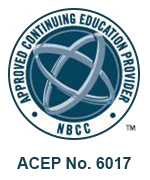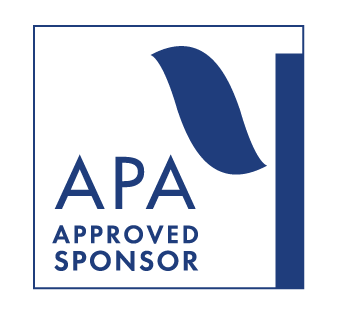An Emergency Response Mini-Course in Technology and Ethics During the COVID-19 Pandemic
Program Chair
Caroline Sehon MD, Jill Scharff MD
Overview
This three-session live online course meets three Wednesdays: March 25, April 1, and April 15 2020 from 7:00pm-9:00pm Eastern Daylight Savings Time
Live Videoconference Course using secure Zoom video platform, participants can join from their own computer, laptop, tablet or smartphone.
Registration fee includes the option to attend one, two or all three of the sessions: $225 ($195 for IPI members)
2 CE credits per session, Limited to 300 participants
Rationale
Early career therapists who have not had training in telehealth are fearful of letting down their patients and losing their practices. From reading list serves and listening to patients, it appears that therapists and patients are highly anxious about using telehealth the first time. A lot of practitioners are totally unprepared for a crisis like this and are now scrambling to do teletherapy. With that however, they don’t know about the technology, don’t know about the ethics around it, don’t know about the need for BAAs and which platforms are HIPAA compliant, or even what questions to ask about them. They don’t know their own licensure laws and a score of other relevant issues, let alone the dynamics of conducting teletherapy. This emergency mini-course is our response.
HIPAA compliant
IPI Members receive a discounted registration fee. HIPAA compliant Zoom video accounts are provided for Associate Member Plus and Full Member Plus memberships. Members who sign up at the “Associate Member PLUS”, or “Full Member PLUS” level will receive an IPI Zoom Pro account that is a HIPAA compliant, online videoconference account. The “PLUS” add-on to the IPI membership gives the user the ability to host online meetings with multiple people at the same time.
IPI has a HIPAA Business Associate Agreement with Zoom, which provides a HIPAA compliant platform for our accounts. HIPPA compliance is strongly recommended for all internet-mediated clinical work and clinical teaching. Current members can upgrade to the “Plus” account and only pay the difference in price from your current membership level. For IPI Membership and Zoom Account information: https://theipi.org/become-a-member/#join
Tuition and Fees
$225 ($195 for IPI members). Registration fee allows participants to attend one, two or all three of the sessions.
2 CE credits per session, Limited to 300 participants
Educational Objectives
Wed March 25th
Participants will be able to:
- List two legal requirements for the best practice of teleanalysis
- Identify three indications and three contraindications for teleanalysis and teletherapy
- Provide one example from their own practice of using an online platform with BAA in adherence to HIPAA privacy and security protections, confidentiality standards, and relevant laws
- Give one example of a countertransference response to poor telephone connection that illuminates the transference and the patient’s sadomasochistic constellation.
- Provide one reason for, and one consequence of, a feeling of rejection
Wed April 1st
Participants will be able to:
- Implement three elements of the ethical stance
- Describe fully one defensive and one affective-expressive use of a displacement object shown on screen in online treatment
- Identify one necessary step toward becoming licensed and reimbursable for teletreatment for a patient in one additional state
- List two measures of effectiveness in analyzing negative transference
- Describe two elements of a contingency plan to handle technology failures, emergencies, or risks in the practice of teleanalysis
- Give one example of analyzing unconscious communication projected onto the technology-mediated setting
Wed April 15th
Participants will be able to:
- Describe two ethical considerations before offering technology-mediated supervision
- Discuss two dynamic factors that influence the supervisor’s ability to contain the supervisee
- Describe two developmental factors that influence a child’s response to the coronavirus
- Describe one cultural factor that influences a child’s response to the coronavirus epidemic
- Compare and contrast two cultural factors that are evident in technology-mediated supervision
Presenters
Jack Novick PhD (Michigan, USA) certified child, adolescent and adult psychoanalyst; President, Association for Child Psychoanalysis (2017); representative to IPA Board; training and supervising analyst, IPA; Supervising analyst, Michigan Psychoanalytic Institute; adjunct supervising analyst, Combined Program in Child Analysis and Child Psychotherapy at the international Psychotherapy Institute; in private practice of child and adult analysis in Ann Arbor, Michigan; author of papers on parent work.
Kerry Kelly Novick, PhD (Michigan, USA) certified child, adolescent and adult psychoanalyst; training and supervising analyst, IPA; member of the IPA’s Committee of Child and Adolescent Psychoanalysis (COCAP); Supervising analyst, Michigan Psychoanalytic Institute; adjunct supervising analyst, Combined Program in Child Analysis and Child Psychotherapy at the International Psychotherapy Institute; in private practice of child and adult analysis in Ann Arbor, Michigan; author of papers on parent work.
David E. Scharff MD, FABP (Maryland, USA) ) fellow of the American Board of Psychoanalysis in child adolescent and adult psychoanalysis, certified adult analyst of the American Psychoanalytic Association (APsaA), certified child and adolescent analyst of the International Psychoanalytic Association (IPA), co-founder and Board Chair Emeritus of the International Psychotherapy Institute (IPI), supervising analyst of the International Institute for Psychoanalytic Training (IIPT), Chair, IPA committee on couple and family psychoanalysis (COFAP), author and editor of many books including The Interpersonal Unconscious, and The Use of the Object.
Jill Savege Scharff, MD, FABP (Maryland, USA) is a certified adult and child analyst of the American Psychoanalytic Association (APsaA) and the Amercian Board of Psychoanalysis, co-founder of the International Psychotherapy Institute (IPI), founder, former Chair, and current supervising analyst of the International Institute for Psychoanalytic Training (IIPT), founding Chair of the Combined Child Analytic and Child Psychotherapy Training Program at IPI; founder of the IIPT Teleanalysis Clinical Research Group; author and editor of books on object relations individual, couple and family therapy, and Psychoanalysis Online, volumes 1, 2, 3 (Karnac) and Psychoanalysis Online volume 4 (Routledge).
Caroline Sehon, MD, FABP (Maryland, USA): Director, International Psychotherapy Institute, past-Chair and supervising analyst, International Institute for Psychoanalytic Training (IIPT); past-Chair, IIPT Teleanalysis Clinical Research Group; member of the American Psychoanalytic Association (APsaA) and the International Psychoanalytical Association (IPA); and author of publications on object relations individual, couple and family therapy including chapters in Psychoanalysis Online, volumes 1, 2, 3 and 4 (Karnac).
Janine Wanlass, PhD (Utah, USA) Past-Director, International Psychotherapy Institute (IPI) and teaching analyst, International Institute for Psychoanalytic Training (IIPT) Chevy Chase MD; Chair, the Child Psychotherapy Track of the Combined Child Analytic and Child Psychotherapy Training program; Professor, Psychology and Counseling department, Westminster College, Salt Lake City, Utah USA; co-chair, IPI Master Speaker videoconference course; faculty member, the continuous course in couple, child and family therapy in Beijing, China and Moscow, Russia; member of IIPT Teleanalysis Clinical Research Group; researcher on technology in psychotherapy and psychoanalysis.
Readings
Lemma, A. (2017). Mediated psychotherapy. In The Digital Age on the Couch, pp. 81-113.
Scharff, D. E. (2019). Psychoanalytic teaching by videolink and telephone. In J. S. Scharff (Ed.) Psychoanalysis Online 4: teleanalytic Practice, Teaching and Clinical Research, 158-158-177. Abingdon, Oxon: Routledge.
Scharff, J. S. (2013). Technology-assisted psychoanalysis. Journal of the American Psychoanalytic Association 61: 491-509.
Wallwork, E. (2013). Ethical aspects of teletherapy. In J. S. Scharff (Ed.) Psychoanalysis Online: Mental health, teletherapy, and training (pp. 85-94). London: Karnac.
Wanlass, J. (2015). The use of technology in clinical supervision and consultation. In J. S. Scharff (Ed.) Psychoanalysis Online 2: Impact of Technology on Development, Training and Therapy, pp. 123-132. London: Karnac.
Registration
Should you have any questions about the program or the application process, please feel free to contact:
Continuing Education Information
The International Psychotherapy Institute, IPI, is approved by The American Psychological Association to sponsor continuing education for psychologists. IPI maintains responsibility for the program and its content. The International Psychotherapy Institute has been approved by NBCC as an Approved Continuing Education Provider, ACEP No. 6017. Programs that do not qualify for NBCC credit are clearly identified. The International Psychotherapy Institute is responsible for all aspects of the programs. The International Psychotherapy Institute is authorized by the Board of Social Work Examiners in Maryland to sponsor social work continuing education learning activities and maintains full responsibility for this program. This training qualifies for Category I continuing education units. The International Psychotherapy Institute is recognized by the New York State Education Department’s State Board for Social Work as an approved provider of continuing education for licensed social workers #SW-0299.
Participants are responsible for verifying that IPI CE credit is accepted by the licensing boards in their own states.



